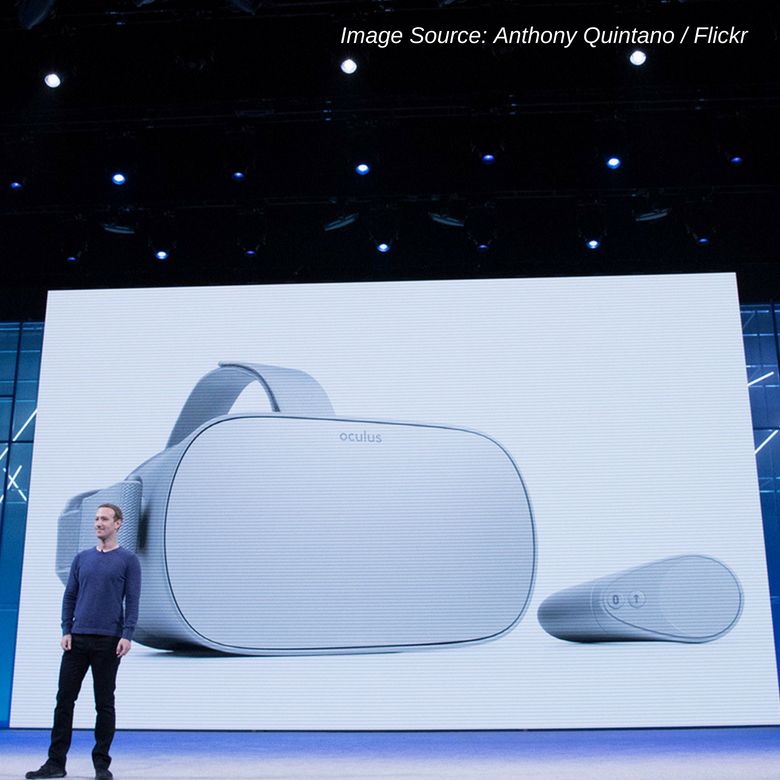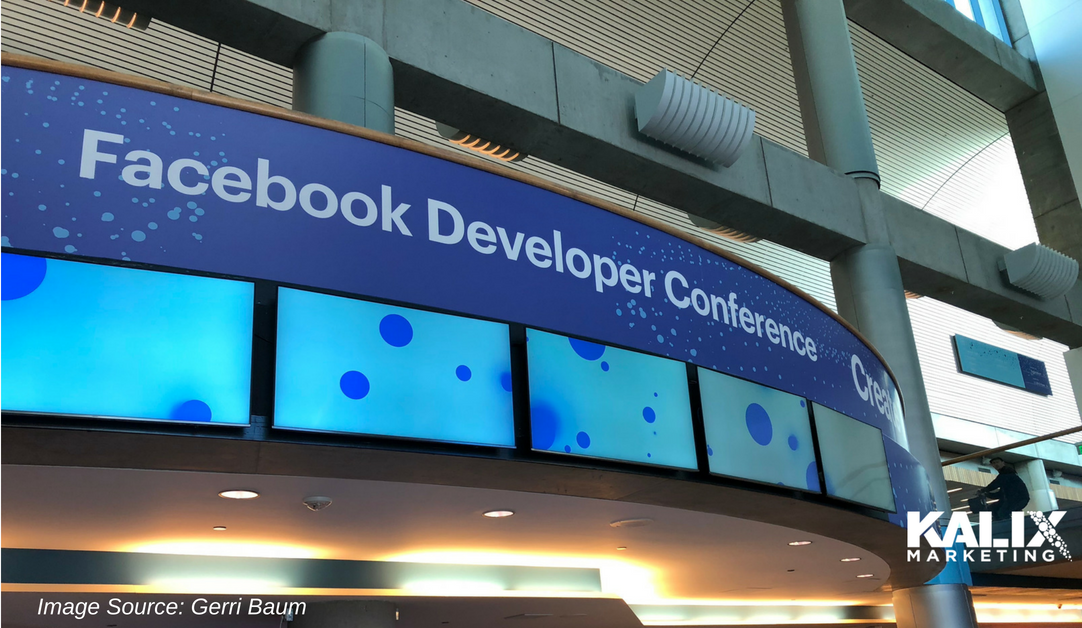Facebook, the social media lifeblood of schools everywhere, is changing. Posting news to your page no longer cuts it – or reaches the prospects you need to reach.
How can your school embrace Facebook’s changes to create a more engaging and authentic voice?
Gerri Baum, Kalix Marketing’s digital and social lead, is fresh from the exclusive, invite-only Facebook 8 Developers Conference, held in San Jose, Calif., during the first week in May. Facebook 8 is an annual conference for select Facebook developers and social media marketing gurus to discover what’s next. Gerri also attended February’s Social Media Marketing World in San Diego, one of the world’s largest social media conventions.
Q: What does it mean for schools now that Facebook has shifted its algorithm to focus on personal connections and away from brands and schools?
At Facebook 8, Mark Zuckerberg [Facebook founder] reiterated that Facebook’s goal is to connect people and give them a platform to engage authentically with one another. The aim is to focus on people and relationships, which drives how the algorithm is changing and will continue to evolve. Schools need to stop talking about themselves and just posting successes.
Schools need to do less promotion, be thought leaders and start conversations. Show people what they want to know, and get their communities – parents, prospects, alumni – talking with each other. Offer information that families can’t get anywhere else, like an e-book on independent school searches or looking for colleges. Bake in success stories but do it in a way that creates authentic conversations on your school’s Facebook page. Up till now, I’ve stressed the importance of driving people to a school’s website with valuable content. However, once the new algorithm is in place, unless there’s meaningful conversation on a post with a website link, schools will have to put dollars behind those types of stories using Facebook Ads.
Q: What is the most important thing for schools to do right now on Facebook?
Create Facebook Groups for your audience. Groups inspire more conversation and can get people engaged with your school. Create Groups for alumni, current and prospective parents and for people with specific interests (athletics, arts, STEM, etc.). Have a staff person or a volunteer moderate the Group to answer questions and tell success stories. Encourage participants to also answer questions and share their successes, knowledge and interests. Facebook has learned that Groups stimulate more conversation then regular posts. So, they’ll now get a higher priority in viewers’ newsfeeds through the new algorithm.
Soon, Facebook will be rolling out Facebook Watch Party, a new feature for Groups. It will allow Group admins to hold a live screening of pre-recorded videos that are publicly available on Facebook. Group members can watch and comment on videos at the same time to create a shared viewing experience. A school could host a movie of a summer travel experience, for example. While watching in real time, participants can make comments and give feedback. Schools could have experts weigh in. Schools also could use Watch Party after an Open House to offer a deeper dive into the value of the school. It has incredible educational and promotional opportunities for interaction and conversation. Facebook is building a Join Group button with a call to action, which you can use on your website or Facebook page to promote the Groups you want your audience to join.
Q: What was your biggest take-away from Facebook 8?
It was eye-opening to learn that Facebook is more than a social networking platform and to understand that artificial intelligence (AI) can play a big role in helping bring the world closer together. Facebook has opened three AI research labs in Montreal, New York and Paris. And, it has partnered with Google to further research and develop the AI tool.
AI is being used throughout various components of Facebook’s platform: to identify and gather data; for face, image and object verification; to address the authenticity of posts (aka “fake news”); and to rank and personalize newsfeed stories for users, while filtering out offensive content and highlighting trending topics. Additionally, Facebook uses AI to help people in need. A person who is visually impaired can now hear audio that describe friends’ photos. And, most recently, AI technology was employed to help identify users who may be suicidal by flagging posts that express suicidal thoughts for Facebook’s human review team to analyze and refer to wellness centers and first responders.
AI also is being used to develop more personal interaction between brands and users on Facebook Messenger by offering brands the ability to create messenger bots that can answer questions for a prospect and extend the personalization that schools need to have online. While these bots don’t replace the personal touch, they are great for schools or brands that don’t have a lot of staff. The use of messenger bots already has exponentially increased the success rate of conversions when used in conjunction with Facebook Ads. And, what’s great is that you can even create a messenger bot that is embedded in a website to continue the conversation with your prospects directly on your site.
Q: What’s new and up-and-coming for Facebook?

Facebook owns Oculus, a company that produces Oculus Rift, a virtual reality headset, which connects to a PC allowing people to experience digital games, virtual worlds and interact with other users. At Facebook 8, the company launched its newest device Oculus Go, a standalone device that gives the user a virtual IMAX experience and much more. I see virtual reality as a huge learning opportunity for classroom use.
Facebook has now integrated Spotify into Instagram, allowing users to share their favorite music in the same way they share images and stories. In addition, Instagram users can now share their latest Go-Pro videos on the platform. There is also a new Instagram Live feature, which schools could use at a game or play rehearsal – any way to show what’s going on at your school in the moment. In December, Instagram will roll out a new Explorer page that allows users to follow hashtags.
Need help navigating the new social media landscape? We can help! Drop us a line.
Sarah Auchenbach is Communications Lead for Kalix Marketing.
Found value in this story? These Facebook stories could also benefit your digital marketing goals:
The Value of a Facebook Ad Campaign for Independent Schools: Summer Marketing Series #7
What Facebook’s News Feed Changes May Mean for Your School’s Facebook Page

